Moroccan Culture and Folklore: Discovering Morocco’s Amazigh Berber Roots
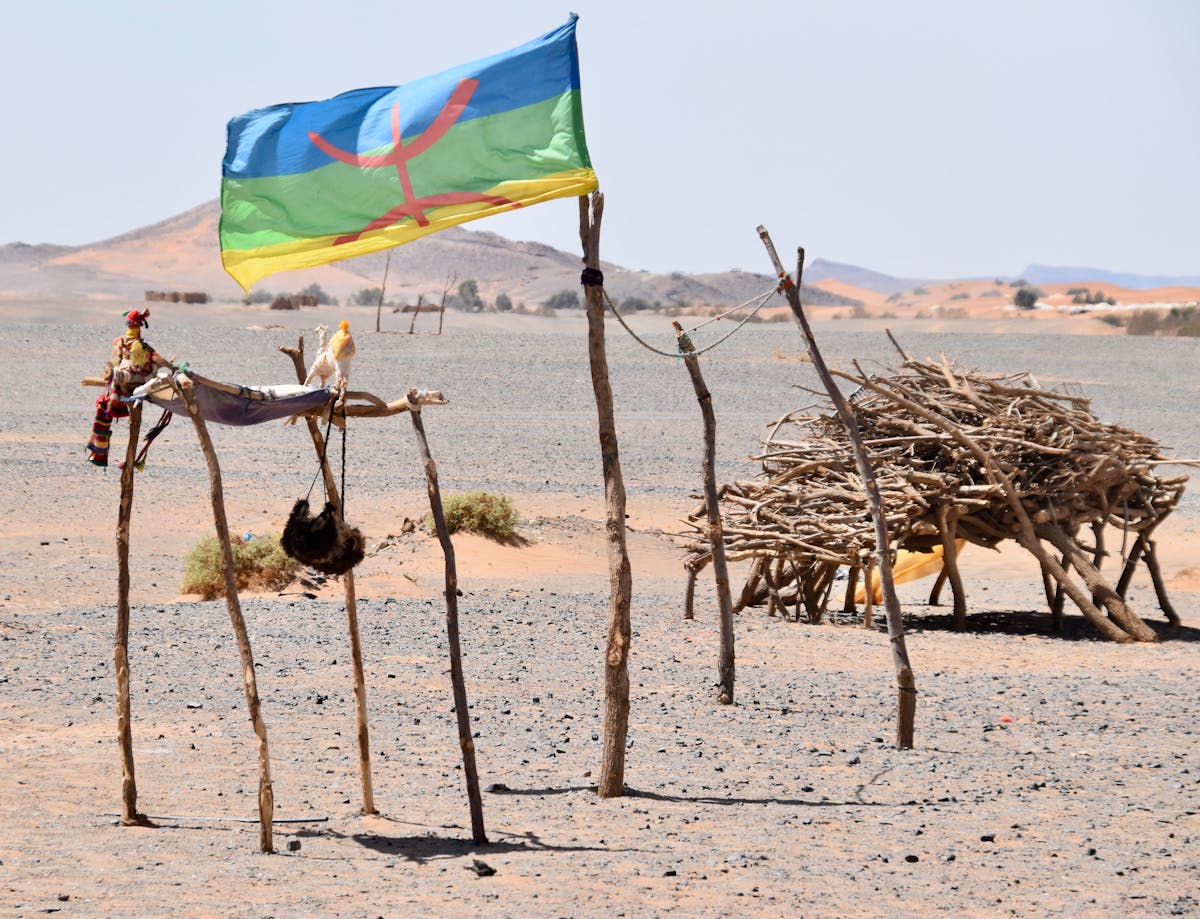
Moroccan crafts like zellij tiles, pottery, textiles, and Amazigh jewelry are more than beautiful art they carry deep cultural meanings. These crafts reflect the rich Amazigh Berber and Arab heritage, symbolizing protection, nature, and identity. Experiencing these traditional crafts offers travelers a unique insight into Morocco’s folklore and vibrant culture in Morocco.
Overview of Moroccan Culture and Folklore
Morocco is a vibrant mosaic of cultures, traditions, and histories that have intertwined over millennia to create a truly unique identity. Moreover, the rich culture in Morocco reflects a dynamic fusion of Arab, Amazigh Berber, African, and Mediterranean influences, making the country a treasure trove for cultural explorers. Moroccan folklore, deeply rooted in oral traditions, music, dance, and crafts, serves as a living testament to the nation’s diverse heritage.
From bustling medinas and ancient kasbahs to remote mountain villages, Morocco’s cultural fabric comes alive in countless forms. For example, it shines through storytelling nights, traditional festivals, and artisanal craftsmanship. Therefore, understanding this cultural richness is essential for any traveler seeking an authentic experience. Indeed, it forms the heart of every trip planner designed to explore Morocco’s timeless heritage
The Spirit of the Amazigh Berber Legacy
Origins and Identity: The Amazigh Berber people, Morocco’s indigenous community, form the foundation of the country’s rich cultural identity. Their language and traditions offer a unique glimpse into Morocco’s diverse heritage.
Connection to Nature and Spirituality: Rooted in the High Atlas and Sahara, Amazigh folklore reflects a deep bond with nature and ancestral spirits, shaping Morocco’s spiritual life to this day.
Living Traditions and Crafts: Amazigh culture thrives through music, storytelling, and crafts, which remain vibrant parts of daily life and cultural festivals across Morocco.
Why It Matters for Your Trip: Understanding the Amazigh Berber legacy is key for travelers seeking an authentic cultural experience, connecting them to the true heart of Moroccan folklore
Key Moroccan Festivals: Celebrating Culture and Folklore
Morocco’s vibrant culture in Morocco comes alive through its diverse festivals, each reflecting unique traditions and heritage. Here are some of the most iconic celebrations
Held in the scenic Anti-Atlas region, this festival marks the blooming of almond trees and showcases authentic Amazigh Berber music, dance, and crafts. It’s a must-see for travelers seeking cultural immersion and a perfect addition to any trip planner.
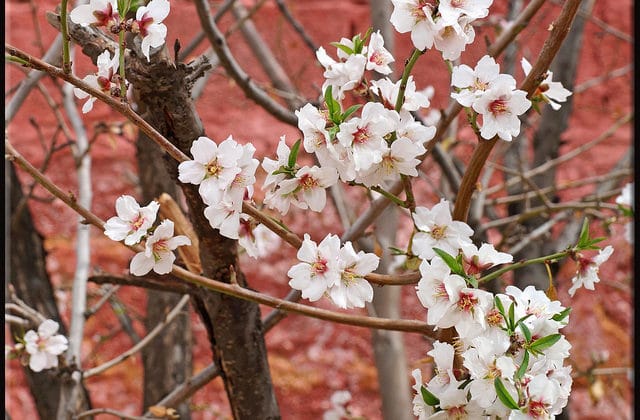
The Imilchil Festival brings together Amazigh communities to celebrate traditional weddings. It offers visitors a rare glimpse into Amazigh customs, folklore, and community spirit.
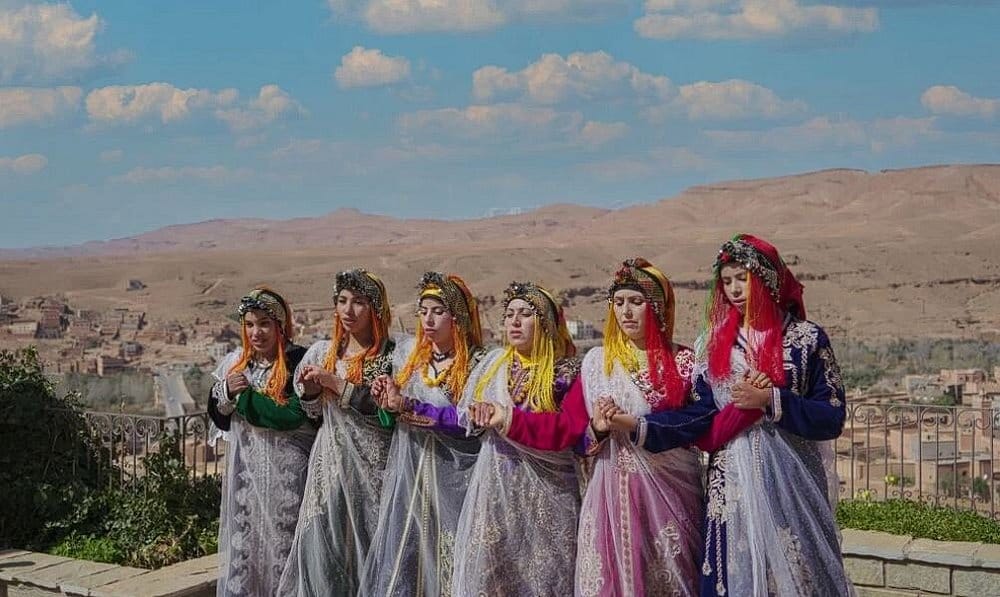
Marrakesh Popular Arts Festival
This lively event features street performances, music, and theater, celebrating the rich artistic heritage of Morocco. It highlights the fusion of Arab and Amazigh Berber cultural expressions, making it a vibrant showcase of Morocco’s cultural diversity.
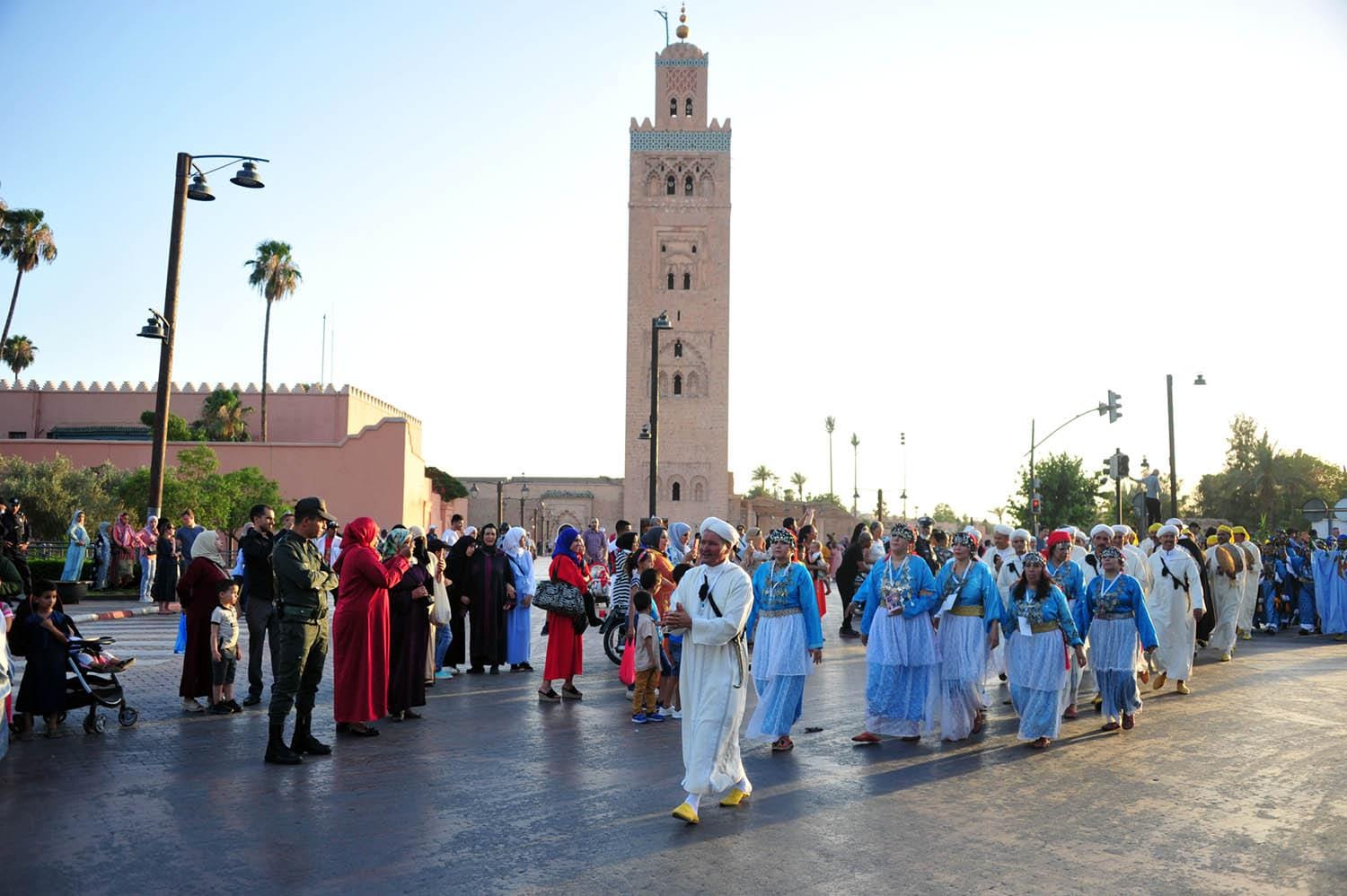
International Nomads Festival
Held in the Sahara desert, this festival honors nomadic traditions from Morocco and beyond. It’s a unique experience highlighting folklore, music, and crafts that celebrate the nomadic way of life.
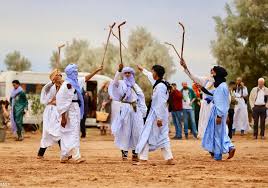
Fes Festival of World Sacred Music
Bringing together spiritual music from across the globe, this prestigious festival in Fes emphasizes the sacred and mystical aspects of Morocco’s culture. It prominently features Amazigh Berber and other local music traditions, reflecting the country’s rich folklore.
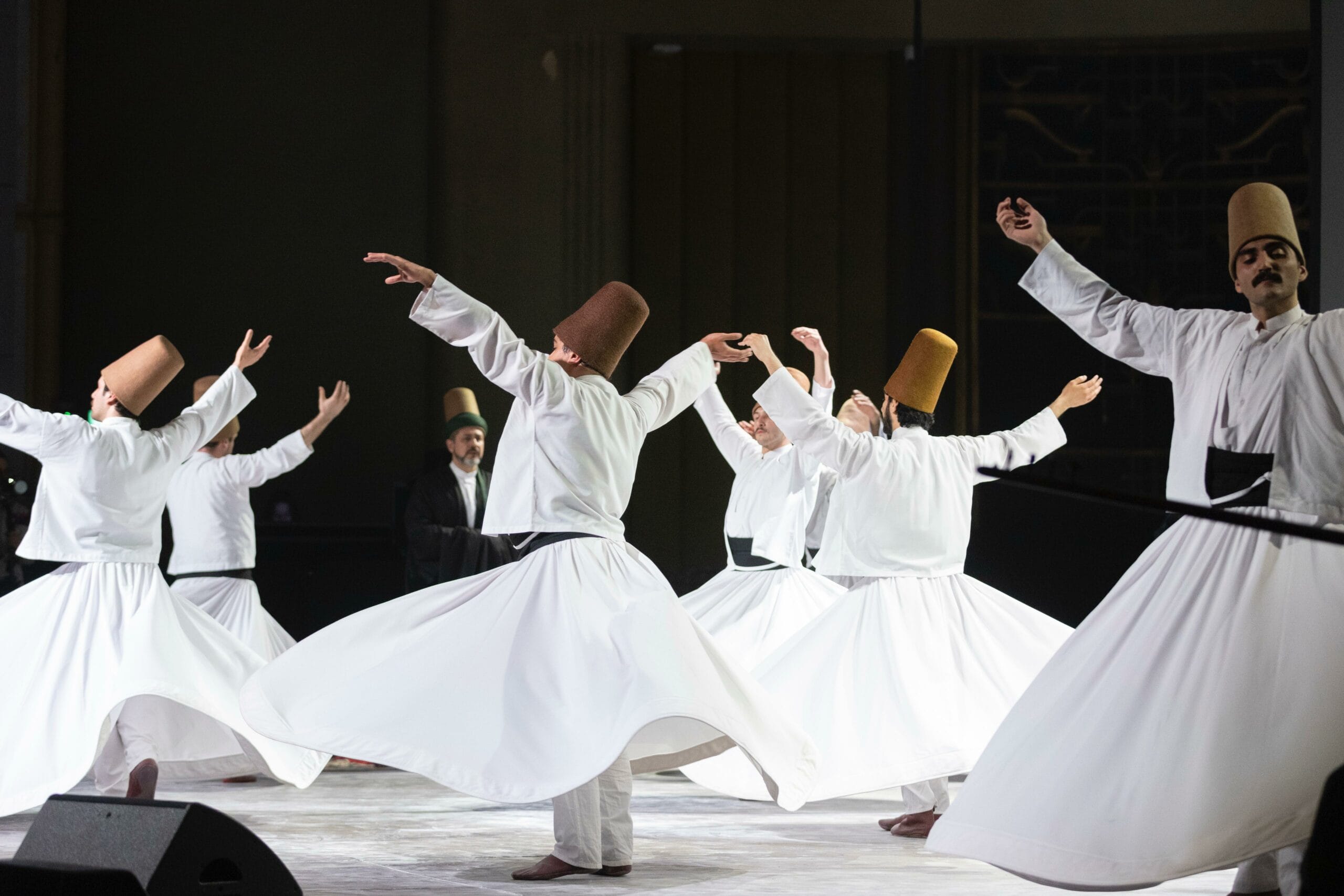
The Gnawa Festival in Essaouira celebrates the hypnotic rhythms of Gnaoua music, rooted in African spiritual traditions. This international event fuses traditional sounds with jazz, blues, and reggae, showcasing Morocco’s openness to cultural exchange.
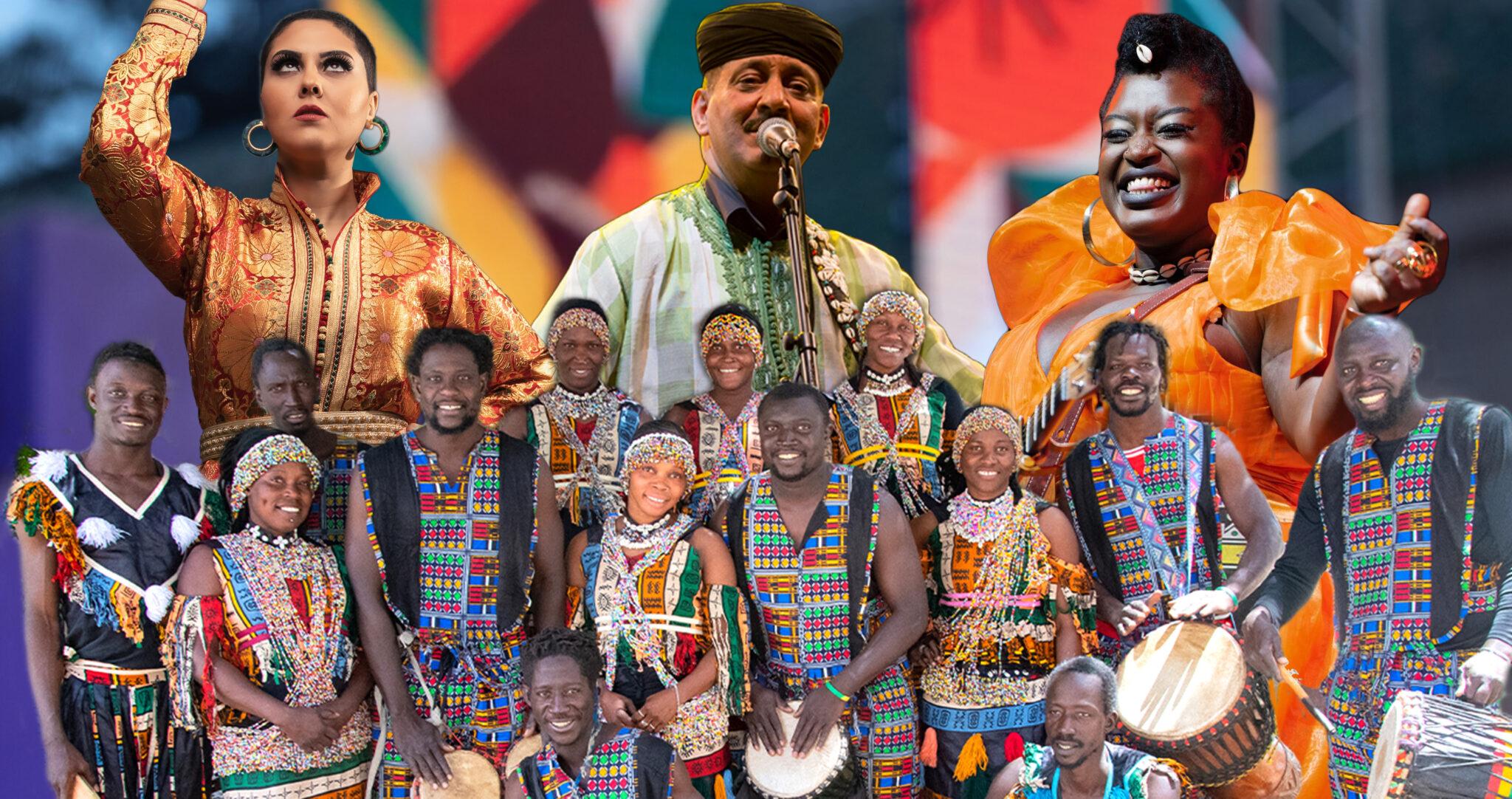
Held in Agadir (read more about Agadir), the Timitar Festival spotlights Amazigh music and contemporary sounds from Morocco and worldwide. It’s a cultural hub for music lovers wanting to explore Morocco’s modern and traditional music scene.
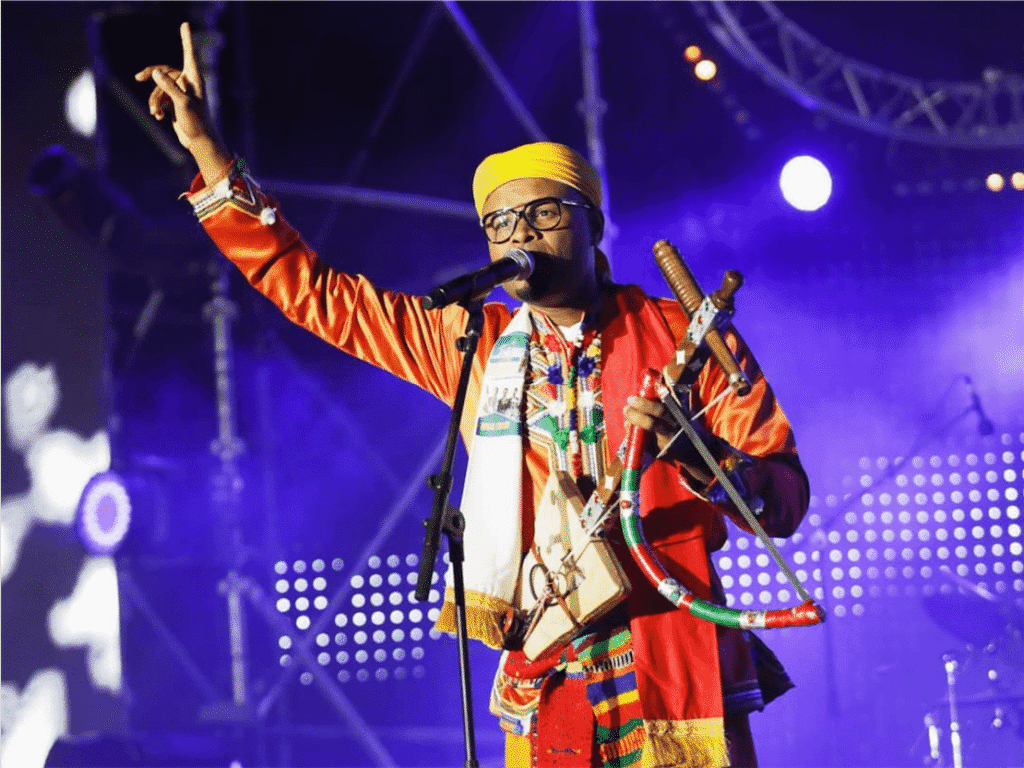
Moroccan Music and Dance: The Heartbeat of Folklore
Moroccan culture shines through its music and dance, especially Gnawa music and Ahidous dance. Gnawa, with roots in sub-Saharan Africa, blends spiritual trance and healing rituals, celebrated annually at the Gnawa Festival in Essaouira. Ahidous, a traditional Amazigh Berber group dance, symbolizes community and cultural pride in Morocco’s Atlas regions. Both highlight the vibrant culture in Morocco and are must-experiences for travelers.
Traditional Moroccan Crafts and Symbolism
Moroccan crafts like zellij tiles, pottery, textiles, and Amazigh jewelry are more than beautiful art -they carry deep cultural meanings. These crafts reflect the rich Amazigh Berber and Arab heritage, symbolizing protection, nature, and identity. Experiencing these traditional crafts offers travelers a unique insight into Morocco’s folklore and vibrant culture in Morocco.
Experiencing Moroccan Culture: A Practical Trip Planner
🗓️ Best Time to Visit:
Spring (Feb – Apr) — festivals bloom, weather’s perfect.🎉 Top Festivals:
Gnawa Festival, Marrakesh Popular Arts Festival, Fes Festival of World Sacred Music.📍 Key Destinations:
Fes (traditions), Anti-Atlas (Amazigh Berber culture), Marrakesh (souks & riads).🎭 Authentic Activities:
Storytelling nights, music workshops, artisan markets, village visits.
Plan smart, explore deeply, and let Morocco’s vibrant culture inspire your journey
Why Moroccan Culture is a Must-Experience for Travelers
Moroccan culture offers a rich, authentic experience full of music, crafts, and stories. Exploring culture in Morocco means diving into traditions that shape its soul. For travelers, it’s more than sightseeing it’s connecting with a living heritage that leaves lasting memories